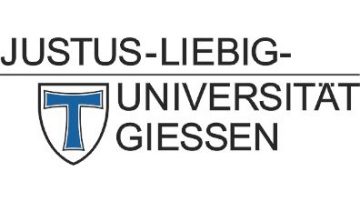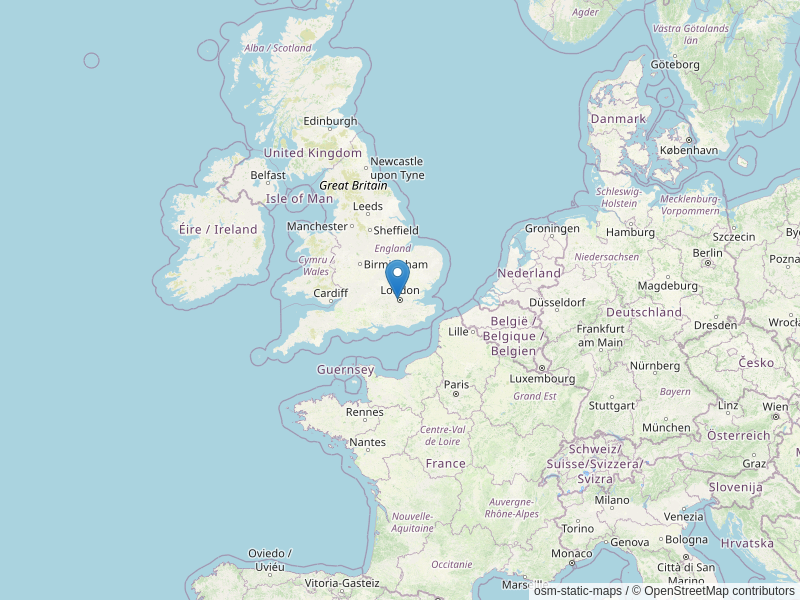German Language Competition 2020 - Das Wort der Zukunft - The word of the future
Das Wort der Zukunft – The word of the future
by the DAAD London and the Institute of Modern Languages Research, University of London
The German Academic Exchange Service (DAAD) and the Institute of Modern Languages Research (IMLR) joined forces for the seventh time to invite all learners and lovers of German to take part in the German language competition – Das Wort der Zukunft.
This year’s competition aimed to encourage learners of the German language to combine their linguistic creativity with their hopes and thoughts for the future. They say that new words capture the zeitgeist. New circumstances and events encourage us to create new terms to describe the world. Slowly but surely, these new words then become part of our everyday language. For example, on a trip to Germany, were you ever asked “Bist du fly”1 ? Or did you ever eat Zoodles2 in Germany? Similarly, in the English language, upcycling has been named Word of the Year 2019 by the Cambridge Dictionary, and the Leibnitz Institute for German language reports 1200 new words that were created during and about the Covid-19 pandemic.
We therefore asked our participants What is the German word of the future?
Anyone who wished to take part in the competition was asked to invent one new German word that could become important in the near or distant future. These words could be made up, e.g. neologisms, put together from pre-existing words, e.g. compound nouns or could be coined in any other creative way. In collaboration with a professional illustrator, we wanted to create an illustrated dictionary of German words for the future. The winning entries would therefore be turned into images and become part of the prize package for each of the winners.
We were very pleased to receive so many entries from the UK, Ireland and beyond. In fact, for participants from outside the UK and Ireland we created the extra category for Global Outreach, along with the other five categories established from the beginning of the competition: Students of German Studies, German language students at universities’ language centres, School and sixth-form College students from years 10 to 13, German native speakers, Other: anyone who felt up for the challenge and did not fit the above categories.
For the assessment of the entries and the selection of the winners, we could count on the expertise of a panel of German language professionals who selected the top three entries from each of the five categories. Please find more information about the panel members here:
Category 1: Students studying for a degree course involving German
Joanne Leal is a Professor in German at Birkbeck, University of London, where she is also Deputy Dean of the School of Arts. She teaches and researches in the areas of twentieth and twenty-first century literature and film and has a particular interest in gender and sexuality and the representation of significant social issues, including migration and social exclusion.
Ina Linge is a Lecturer in German in the Department of Modern Languages and Cultures at the University of Exeter. She teaches and researches in the areas of twentieth and twenty-first century literature, film and visual culture. Her research and teaching contribute to the study of life writing, the history of sexuality, medical humanities and most recently animal studies.
Category 2: German language students at universities’ language centres
Paul Hoegger is co-ordinator and teacher of German at the Cambridge University Language Centre and Affiliated Lecturer at the Faculty of Modern and Medieval Languages and Linguistics of the University of Cambridge. He is also Director of Studies for Modern Languages at Fitzwilliam College Cambridge and teaches literary seminars at the Institute of Continuing Education of the University (Madingley Hall).
Domini Stone is Manager for Educational Links at the Goethe-Institut London. Domini’s own German journey began over 30 years ago when a school exchange to the Rhineland sparked an interest in the language and culture. She went on to do a German degree at Leeds University and an enjoyable third year abroad in Berlin, as a language assistant, inspired her to become a German teacher, in West Yorkshire. In her role at the Goethe-Institut, Domini enjoys working together with schools and partner organisations, on a range of different projects and programmes, to promote the German language and culture.
Category 3: School and sixth-form College students from years 10 to 13
René Koglbauer is Dean of Lifelong Learning and Professional Practice and Professor of Professional Practice and Leadership at Newcastle University. René is the chair of the Board of Trustees of the Association for Language Learning and has previously been its president. René is the UK representative on the International German Teacher Association and director of Network for Languages North East.
Andrea Wilczynski is Head of the School of Modern Languages at Newcastle University. She has been a longstanding member of the School’s German Section where she currently teaches Interpreting and German language to final year students. She is a Senior Fellow of the Higher Education Academy.
Category 4: Native German Speakers
Stephan Ehrig is an Irish Research Council Postdoctoral Research Fellow at University College Dublin. He researches German literature around 1800 (especially Heinrich von Kleist) and engages with interdisciplinary approaches to East German culture (literature, theatre, film, architecture) but is also interested in how German culture generally can be re-located within transnational and ‘de-colonised’ approaches to the study of Modern Language Studies.
Maria Roca Lizarazu is a Leverhulme Early Career Fellow in the Department of Modern Languages at the University of Birmingham. Her research interests include German Jewish literature and culture, memory and transnational studies, literatures and cultures of (post-)migration and, more recently, questions of contemporary citizenship. Maria is particularly interested in how Arts and Humanities research as well as creative methods can help us address social and cultural challenges around migration, belonging and membership.
Category 5: Other: anyone who feels up for the challenge and does not fit the above categories
Duncan Large is Professor of European Literature and Translation at the University of East Anglia in Norwich and Academic Director of the British Centre for Literary Translation.
Silke Mentchen is one of two Language Teaching Officers in the Department of German and Dutch at the University of Cambridge, as well as a Fellow of Magdalene College, Cambridge. She has established and is directing a German network for schools in the East Anglia region.
The winners of the competition were announced at the prize giving event which took place online on Wednesday, 24.03.2021.
At the prize giving event we wanted to centre stage all the splendid and creative entries we received and crown the best ideas for new German words. The announcements of the winners by the jury were interspersed with the performance of Friedrich Herrmann, poetry slammer and winner of the 2019 German national poetry championship who was given all the entries to the competition in advance to create an original piece based and developed exclusively on the entries to the competition. In addition, Max Weber, graphic designer, and illustrator, gave an insight into the creative process behind the creation of the illustrated dictionary of winning entries.
Please find here the recording of Friedrich Herrmann’s performance of his original piece Wörter der Zukunft:
Recording of Friedrich Herrmann's performance of his original piece 'Woerter der Zukunft'
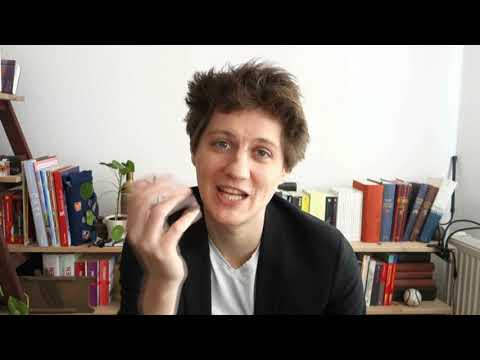
The winners of the German Language Competition – Das Wort der Zukunft
Congratulations to all the winners of the German Language Competition!
Category 1: Students of German Studies
1st PRIZE: Jack Graveney, Wort der Zukunft: die Maskenlosigkeitserkenntnis
2nd PRIZE: Matilde Guala Molino, Wort der Zukunft: die Amnamesie
3rd PRIZE: Frida Petersen, Wort der Zukunft: der Zoombie
Category 2: German language students at universities’ language centres
1st PRIZE: Nathalie Hope, Adeline Fawcett-Ellis, Deniz Incesu, Wort der Zukunft: der Schreibtischpendler
Category 3: School and sixth-form College students from years 10 to 13
1st PRIZE: Rachel Williams, Wort der Zukunft: zoomschick
2nd PRIZE: Lydia Metaxa, Wort der Zukunft: die Mikrofonstummschaltparanoia
3rd PRIZE: Catriona Hay, Wort der Zukunft: der Umweltschädenstrauss
Category 4: German native speakers
1st PRIZE: Christian Mossmann, Wort der Zukunft: fairgewissern
2nd PRIZE: Liesel Scheidt, Wort der Zukunft: coronasiert
3rd PRIZE: Eleanor Voak, Wort der Zukunft: die Fakeologie
Category 5: Other: anyone who felt up for the challenge
1st PRIZE: Bethan Williams, Wort der Zukunft: das Parallelweh
2nd PRIZE: Ivan Gonzalez Curbelo, Wort der Zukunft: der Planetentourist
3rd PRIZE: Harik Sodhi, Wort der Zukunft: der Virusoutbreak
Global Outreach
1st PRIZE: Alexander Laney, Wort der Zukunft: dörtchen
2nd PRIZE: Jeannine Wanner, Wort der Zukunft: ersi
3rd PRIZE: Rasleen Kaur, Wort der Zukunft: studiumsfähig
Thanks to the generous contributions of our partner organisations and sponsors, the following fantastic prizes were sent to the winners:
- Prize: In-Ear Wireless Earbuds, books to learn and practise German
- Prize: 6 Months long subscription for Babbel to learn German online, books to learn and practise German
- Prize: Games and books to learn and practise German
All winners also received the postcard booklet created by Max Weber and a set of our fun DAAD goodies.
Please download here [PDF 2.11 MB] the digital version of the postcard booklet including the meaning of the winning words.
Other Events
In the context of the competition the online panel discussion ‘Capturing the Zeitgeist. Tracking Words in German and English Dictionaries’ was organised on 23 November 2020. Rosie Goldsmith, director of the European Literature Network hosted the conversation between Kathrin Kunkel-Razum, editor in chief of the German publishing house DUDEN and Wendalyn Nichols, publishing manager at Cambridge University Press. Watch the recording here:
Capturing the Zeitgeist. Tracking Words in German and English Dictionaries
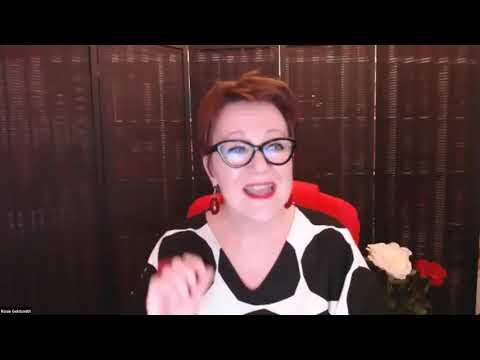
We thank the following organisations for their continuous generous support:
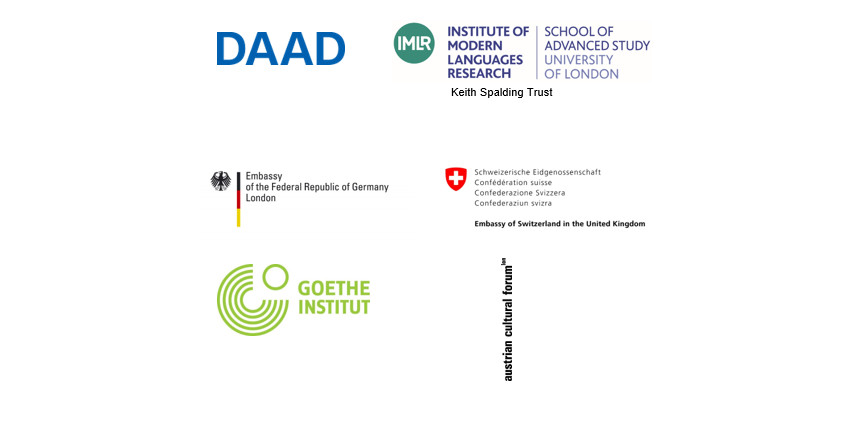
1 Fly sein = to be in a good mood
2 Die Zoodles: Noodles made of zucchini, zucchini+ noodles


